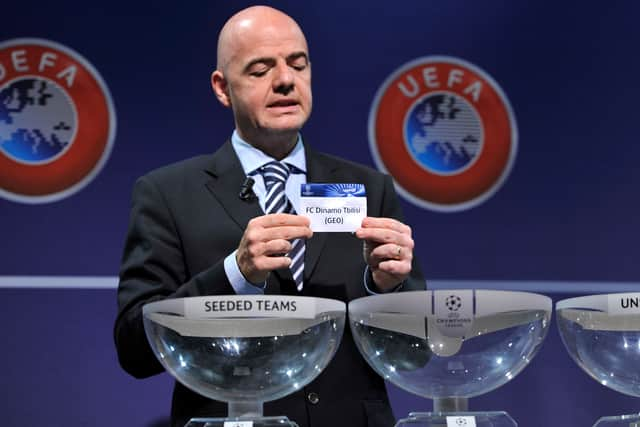Who is hosting the 2030 World Cup? How tournament will be played in six countries and three continents
and live on Freeview channel 276
It's set to be a complicated decade ahead for the World Cup as FIFA oversees sweeping changes to how the tournament will be held. Football fans are still getting their heads around how the event will take place across the United States, Canada and Mexico in 2026 and now it appears the 2030 event will run across three separate continents.
After that, there's the matter of a controversial Saudi Arabia bid for the 2034 tournament, which looks sure to reignite the human rights issues raised in Qatar last year. Here's the latest on the 2030 World Cup and what South America have to do with the European and African event.
Advertisement
Hide AdAdvertisement
Hide AdWhere will the 2030 World Cup be held?
The 2030 World Cup will be a first-ever as three countries from two different continents host the competition in Spain, Portugal and Morocco. The event will be the 24th World Cup and is the next destination after the 2026 World Cup in the United States, Mexico and Canada.
North America and Asia could not bid to host the event as those continents will have held the two prior tournaments. There were abandoned bids from the United Kingdom and Ireland, as well as the trio of Egypt, Greece and Saudi Arabia - FIFA would have had to ignore its rule regarding past hosts to allow Asian country Saudi Arabia to host in the latter partnership.
The United Kingdom and Ireland chose to focus on hosting Euro 2028 and Saudi Arabia switched its focus to a sole 2034 World Cup bid, leaving Spain, Portugal and Morocco as the destination for the 2030 World Cup.
How will there be matches in South America as well as Europe and Africa?
If it wasn't complicated enough organising the 2030 World Cup over two continents, the opening three matches of the tournament will actually take place in South America. Uruguayan capital Montevideo, Argentinian capital Buenos Aires and Paraguayan capital Asuncion will all host a fixture each before the tournament moves in full to Spain, Portugal and Morocco. Six teams will be involved in those matches and will then fly across the Atlantic to join the competition.
Advertisement
Hide AdAdvertisement
Hide Ad

FIFA President Gianni Infantino said: “In a divided world, FIFA and football are uniting. The FIFA Council, representing the entire world of football, unanimously agreed to celebrate the centenary of the FIFA World Cup, whose first edition was played in Uruguay in 1930, in the most appropriate way.
"As a result, a celebration will take place in South America and three South American countries - Uruguay, Argentina and Paraguay - will organise one match each of the FIFA World Cup 2030. The first of these three matches will of course be played at the stadium where it all began, in Montevideo’s mythical Estádio Centenário, precisely to celebrate the centenary edition of the FIFA World Cup.”
Who is Gianni Infantino?


The man at the heart of the decision, as with many FIFA rulings, is Gianni Infantino. The 53-year-old Swiss international is the president of FIFA and has held the role since 2019, having been re-elected in 2019 and again in 2023. The football administrator also holds a role on the International Olympic Committee.
Infantino is a Swiss law graduate who speaks seven languages and came to prominence having first started working in the legal teams at UEFA. Infantino has been at the heart of recent controversy surrounding the awarding of the World Cup to a country with as poor a human rights record as Qatar and the 2016 Panama Papers fallout.
Comment Guidelines
National World encourages reader discussion on our stories. User feedback, insights and back-and-forth exchanges add a rich layer of context to reporting. Please review our Community Guidelines before commenting.
